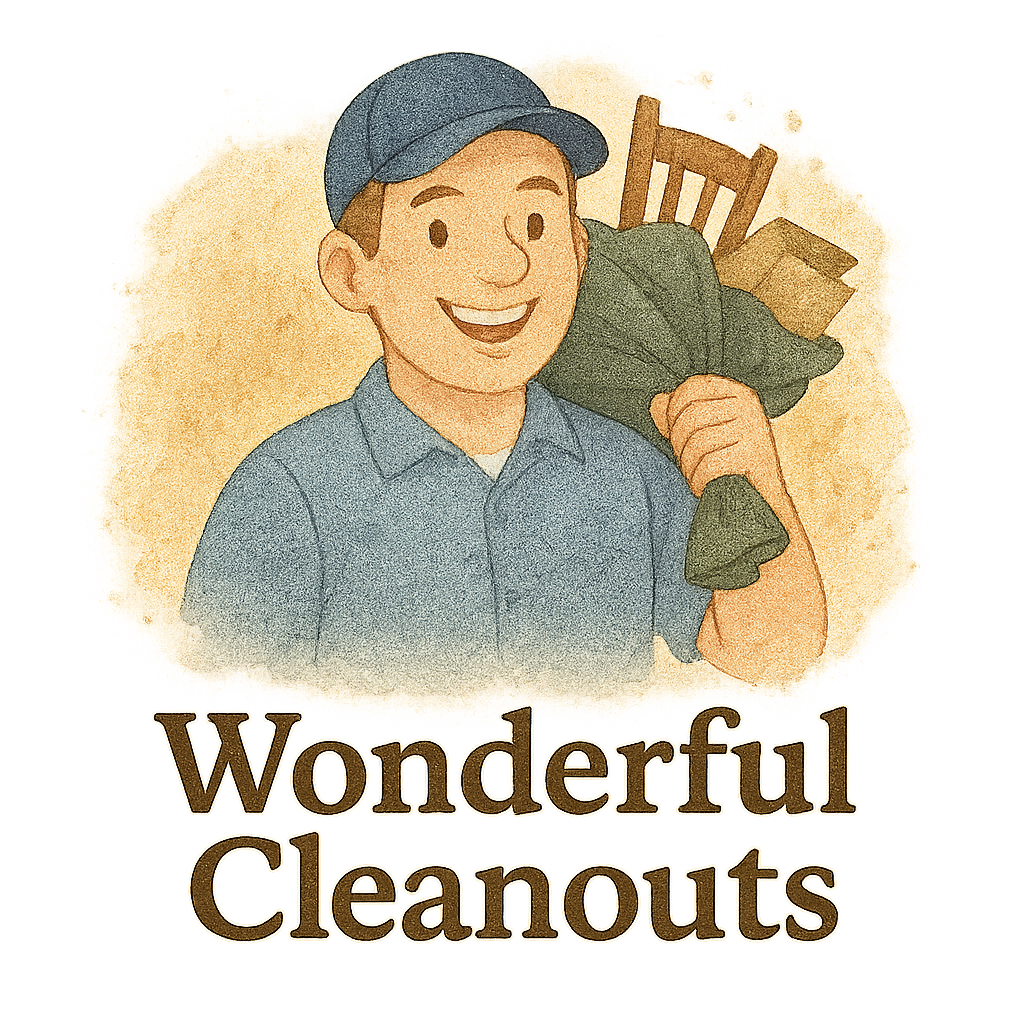Introduction
Planning an estate cleanout can feel like standing at the base of a mountain with no climbing gear. Whether it’s due to the loss of a loved one, downsizing, or managing inherited property, estate cleanouts often come with emotional weight and logistical challenges. But don’t worry—we’re here to walk you through it step by step. Before you call in the professionals, here’s a complete roadmap of what to do to make the process smooth, respectful, and even healing.
If you’re exploring professional services, consider browsing Wonderful Cleanouts—a trusted provider for every type of cleanout.
1. Understand What Estate Cleanouts Involve
Why Are Estate Cleanouts Necessary?
Estate cleanouts aren’t just about emptying a house; they’re about closure, transition, and sometimes healing. When a family member passes or moves into assisted living, someone has to manage their belongings—and that’s where a cleanout service comes in.
Common Scenarios That Require Cleanouts
- Inheritance situations
- Foreclosure or eviction
- Downsizing due to retirement
- Decluttering after hoarding
For tailored cleanout solutions, check out estate cleanout services and browse estate-related tips.
2. Assess the Estate Thoroughly
Take an Inventory
Before you toss anything, make a comprehensive list. Snap photos or use apps to keep everything organized. Think of it as the roadmap to your cleanout journey.
Evaluate the Size and Scope
Ask yourself: Is this a four-bedroom house or a one-bedroom condo? Do we have attics, basements, sheds? These factors matter when you’re budgeting and planning logistics.
If you have excess items stored in garages or attics, check out garage & attic cleanouts for help.
3. Gather Important Documents
Legal and Financial Papers
Dig through desks and filing cabinets. Look for wills, trusts, bank statements, insurance policies, and property deeds. These are non-negotiables—set them aside immediately.
What to Keep and What to Shred
Shred personal papers that aren’t relevant (like old utility bills), but store anything that could have legal or tax implications.
Explore organizational tips under planning.

4. Secure the Property
Change Locks and Secure Access
This step often gets overlooked. If multiple people had keys, it’s time to update locks. Safety first, always.
Utility and Insurance Considerations
Notify the utility companies and ensure the property is insured until it’s sold or transferred. Also, notify the post office to forward mail.
Safety should always be prioritized—here’s why.
5. Consult Family Members or Executors
Divide Responsibilities
Even if you’re the executor, you don’t have to do everything solo. Delegate tasks like sorting, donating, or even emotionally supporting each other.
Avoid Conflict Through Communication
Nothing stirs up family tension like unspoken expectations. Schedule meetings, communicate clearly, and get everything in writing when possible.
More on estate-related planning here.
6. Set Aside Valuable or Sentimental Items
Appraisal of High-Value Belongings
If there are antiques, jewelry, or rare collectibles, get them appraised before selling or donating. You don’t want to accidentally give away a Picasso.
Emotional Significance Matters Too
Even if it’s not worth much money, Grandma’s old apron or Dad’s favorite watch may mean the world to someone.
7. Separate Trash from Donation or Sale Items
Recycle, Donate, or Sell What You Can
Not everything belongs in a landfill. You’ll be surprised at how much can be given a second life. Furniture, clothes, electronics—all can be recycled, donated, or sold.
Explore residential cleanout options or commercial cleanouts depending on property type.
Don’t Toss Everything Right Away
Sometimes a second opinion or a simple polish turns “junk” into treasure.
Visit the tips section for decluttering advice.
8. Plan for Special Handling of Hazardous Materials
Know What Can’t Go in the Dumpster
Paint cans, batteries, old electronics, or chemicals can’t just be thrown out. They need special handling and disposal methods.
Contact Specialized Removal Services
Hazmat professionals or eco-disposal services can handle these items safely and legally.
More insights can be found in the tools and gear sections.
9. Choose the Right Estate Cleanout Company
What to Look for in a Professional Team
Look for licensed, insured, and experienced cleanout companies with good reviews. A strong local reputation is a huge plus.
Local Expertise Matters
Local providers often understand the regional market, regulations, and donation networks better. Consider Wonderful Cleanouts for reliable service.
Check out options for hoarding if needed.
10. Schedule the Estate Cleanout Strategically
Timing Around Legal Proceedings
Avoid rushing into a cleanout before wills are read or property rights are finalized. Work with lawyers to time things correctly.
Preparing for the Day of the Cleanout
Label everything clearly. Communicate with your cleanout crew. Ensure the property is accessible. And most importantly—breathe. You’ve done the hard part.
Conclusion
Estate cleanouts aren’t easy, but they don’t have to be overwhelming. By following these 10 steps, you’ll be well-prepared—mentally, emotionally, and practically. And when the time comes, you can bring in a trusted team like Wonderful Cleanouts to help lighten the load.
You’ve got this.
FAQs
1. How long does an estate cleanout usually take?
It depends on the size of the property and the amount of clutter, but typically 1–3 days for a full cleanout.
2. What if there are items I’m not ready to let go of?
Set them aside in a clearly labeled area. Take your time with emotionally sensitive items.
3. Can I handle an estate cleanout by myself?
Yes, but it can be physically and emotionally exhausting. Consider hiring professionals to ease the burden.
4. Are there any tax deductions for donated items?
Yes! Keep donation receipts and consult your tax advisor to claim deductions.
5. What’s the cost of a professional estate cleanout service?
Prices vary by region and volume, but expect $500–$2,000. Get a few quotes for comparison.
6. What should I do with old photos and memorabilia?
Scan and digitize them. Share with family before discarding originals.
7. Can I donate furniture and large appliances?
Absolutely. Many charities offer pick-up services for these items. Confirm they’re in usable condition.

